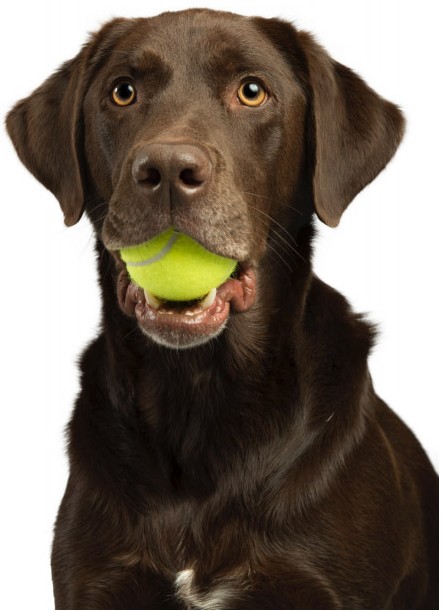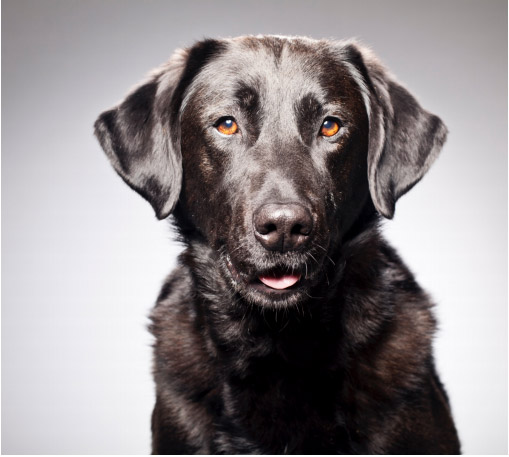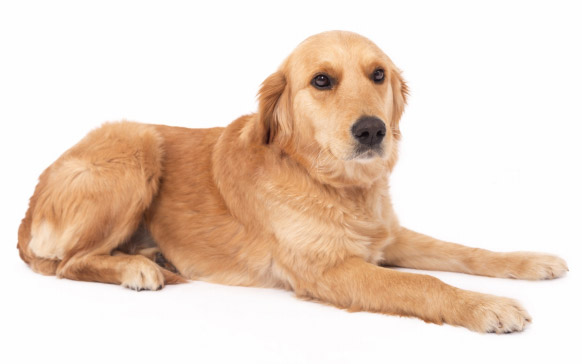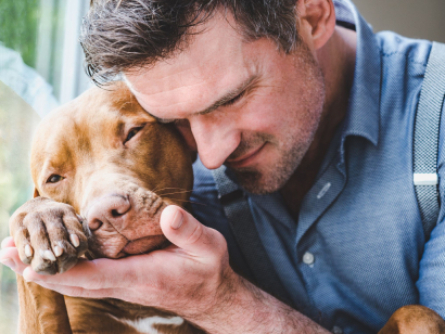Canine shoulder disorders vary from juvenile bone disorders such as OCD, to athletic traumatic injuries, to tendinopathies seen most commonly in middle aged to older sporting breed dogs. Arthroscopy and musculoskeletal ultrasound are valuable diagnostic tools.
Osteochondritis dissecans is a common juvenile joint disorder seen in young, large and giant breed dogs. The disorder involves a congenital problem associated with bone and cartilage development which results in intraarticular cartilage/bony flaps.
The problem starts with a syndrome called osteochondrosis which is a failure of endochondral ossification; the process by which most bones grow and articular cartilage is formed. This failure of cartilage becoming bone results in overly thick joint cartilage adjacent to the joint. The deepest layer of this thickened cartilage is inadequately nourished resulting in cell death. Eventually, the deep detachment fissures and propagates to the joint surface and a “flap” develops. Cartilage debris and inflammatory mediators are released into the joint fluid and inflammation ensues. With time, arthritis/ degenerative joint disease occurs.
Osteochondritis dissecans most commonly affects the shoulder joint, but also occurs in the elbow, stifle (knee) and tarsal (ankle) joints in young dogs.
Canine shoulder OCD usually causes significant front limb lameness. The diagnosis of OCD is based on physical examination and radiographs. CT scanning is helpful, but in most cases is unnecessary. The definitive diagnosis is made via arthroscopy.
Treatment of shoulder OCD involves removal of the cartilage flap. In all cases, arthroscopic removal is considered the state of the art and least invasive method. Following flap removal, micro-fracturing the remaining defect may be performed, depending on the heath of the underlying bone. Micro-fracturing involves making small holes in the remaining defect in an attempt to reach a local blood supply, which may aid in healing. In general, dogs with shoulder OCD have an excellent prognosis following arthroscopic flap removal.

Supraspinatus tendinopathy is typically seen in mid-aged, athletic dogs. The disorder involves tendon fiber tearing and inflammation thought to be induced by over-zealous activity. Overtime, mineralization of the tendon may occur. Dogs with supraspinatus tendinopathy have varying degrees of lameness ranging from mild and intermittent to severe and persistent. The diagnosis of supraspinatus tendinopathy is based on physical examination, radiographs and musculoskeletal ultrasound. Treatments range from rest alone to intra-tendon, platelet rich plasma injections to surgical resection of the mineralized tendon. The specific treatment(s), and prognosis, depends on the severity of the problem.

Medial shoulder instability is a relatively uncommon condition seen in midaged, sporting and large breed dogs. The problem is typically related to tearing of the glenohumeral ligament on the medial side of the shoulder joint. The clinical signs range from mild to severe front limb lameness. The tentative diagnosis of medial shoulder instability is made based on physical examination and musculoskeletal ultrasound. Arthroscopy is used for definitive diagnosis. Treatment depends on severity of the problem and ranges from debridement and external support to platelet rich plasma injections to surgical stabilization.
Bicipital tendon tearing and inflammation is a relatively uncommon shoulder problem seen in mid-aged, sporting and large breed dogs. The clinical signs are variable and range from mild to severe lameness. The diagnosis is based on physical examination, radiography, musculoskeletal ultrasound and arthroscopy. Treatments vary on the degree of tearing. Subtle tears can be treated with external support and plasma rich plasma injections. Near complete tears are typically treated via arthroscopic resection of the torn portion of the tendon. Overall the prognosis is good following treatment.

The average cost for shoulder arthroscopy at Colorado Canine Orthopedics can vary from patient to patient due to factors that may be hard to determine until a physical examination has been completed. Please contact our office to discuss a pre-consultation estimate for your pet. A refined, doctor specified estimate will be presented at the end of your pet’s initial consultation.
At Colorado Canine Orthopedics we are committed to providing only state of the art, non-compromised pet healthcare. We realize some pet owners may find this level of care relatively costly. However, despite the inherently expensive nature of our work, we are dedicated to providing the highest level of care at the most affordable price possible. We believe if you compare our fees to other specialty practices you will find this true.

Colorado Canine Orthopedics
5528 North Nevada
Colorado Springs, CO 80918
Tel: 719-264-6666

Call our office today and speak with one of our Pet Care Coordinators to schedule a consultation.

Call our office today and speak with one of our Pet Care Coordinators to schedule a consultation.

Colorado Canine Orthopedics
5528 North Nevada
Colorado Springs, CO 80918
Tel: 719-264-6666